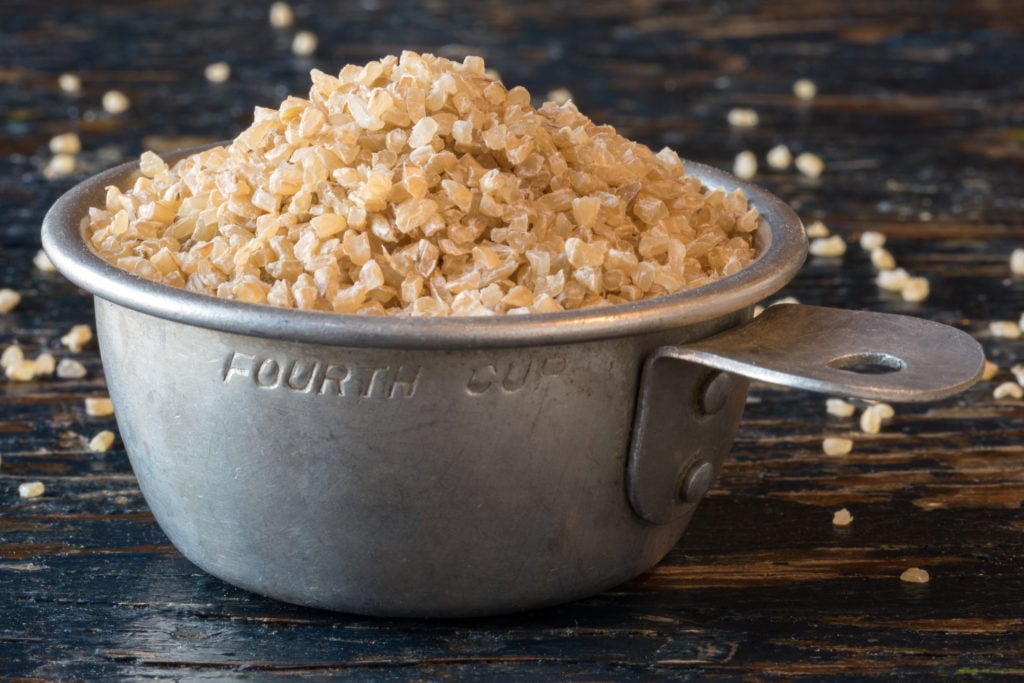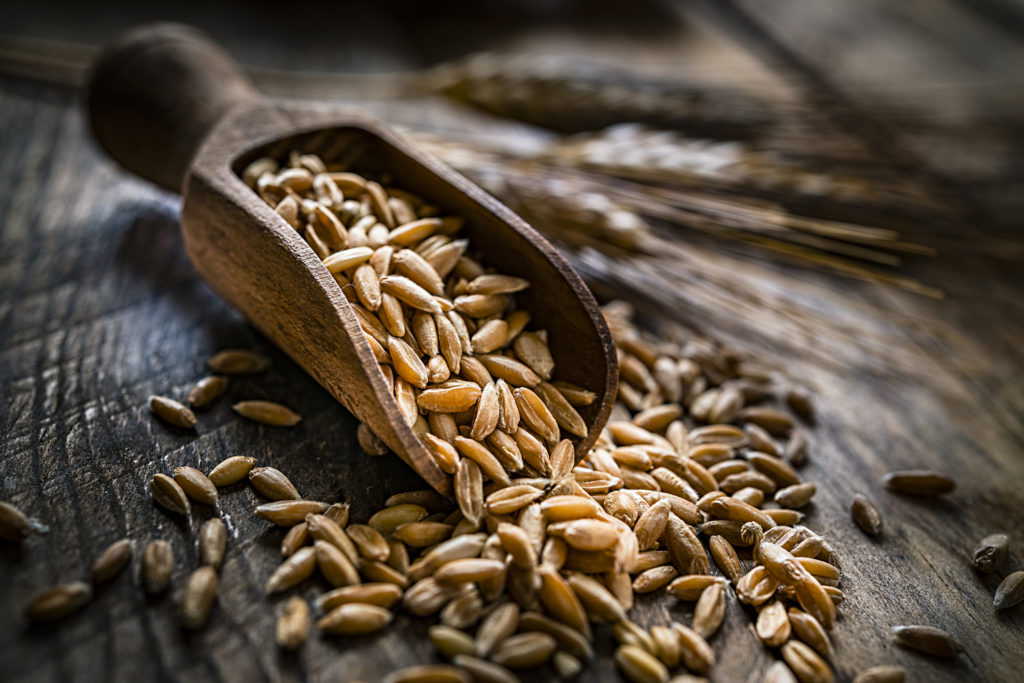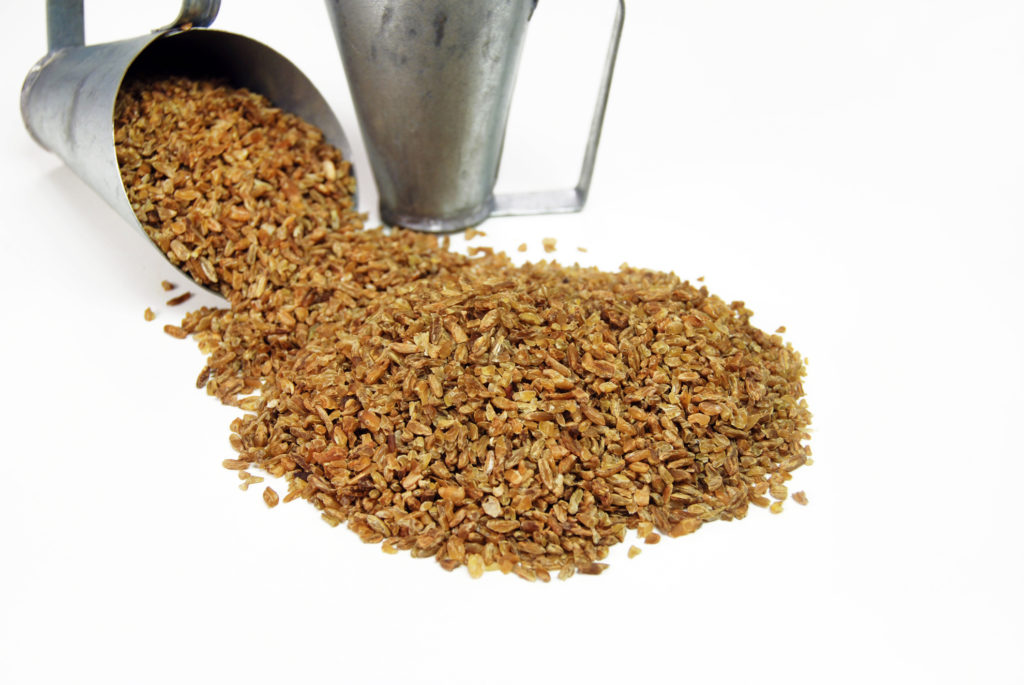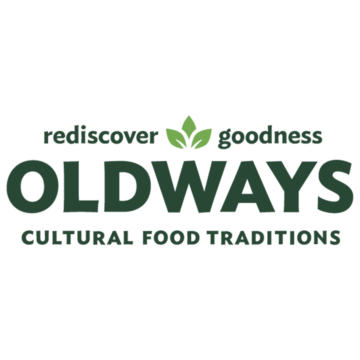Wheat, grapes, and olives are known as the “trinity” of the Mediterranean diet. These are the three key crops that have shaped this historic and beloved cuisine. Research consistently demonstrates that people who follow a Mediterranean diet (which includes whole grains such as bulgur wheat, farro, whole wheat bread, and whole grain polenta) have lower risks of many chronic diseases, including heart disease and stroke.
In The Blue Zones, a book about the cultures that live the longest, healthiest lives, author Dan Buettner reveals that the “classic Sardinian diet consists of whole-grain bread, beans, garden vegetables, fruits,” and often wine.
Eating more healthy whole grains, and whole wheat in particular, is a great first step when embracing a Mediterranean diet. Below are a few of our favorite Mediterranean wheats.
Healthy Mediterranean Wheats

Bulgur, cracked and parboiled whole wheat pieces, is a quick cooking (10-12 minutes) grain that is featured prominently in herby salads, such as Turkish kisir or Middle Eastern tabbouleh. Bulgur is also sometimes considered the ‘pasta of the Middle East’ because it is a quick cooking, versatile staple.

Farro (or Emmer) is an ancient variety of wheat that was domesticated in the Fertile Crescent. Similar to other wheat berries, the farro grain has a nutty flavor and pleasantly toothsome texture. It remains delightfully chewy whether eaten hot or cold, making farro an ideal base for grain salads. Creative chefs also use farro to make “farrotto,” a nutty, whole grain interpretation of the classic Italian risotto.

Freekeh wheat traces its roots back several thousand years to ancient Egypt and surrounding areas. Legend has it that freekeh was discovered when an ancient village in the Eastern Mediterranean hurriedly picked young wheat before an attack on their city. Attackers’ fires burned the young wheat, but the result was quite delicious.
Gluten Free Doesn’t Mean Grain Free
With wheat and grains playing such an integral role in Mediterranean cookery, no one would mistake the Mediterranean diet for a “gluten-free” or “low carb” diet. However, those who have a medically diagnosed gluten issue (such as celiac disease) can still reap the benefits of a healthy Mediterranean diet. In fact, research has shown that people with celiac disease who follow a gluten-free version of the Mediterranean diet can improve their nutritional status.
While wheat, barley, rye, and triticale do contain gluten-forming proteins, most whole grains are naturally gluten free, such as these:
- Amaranth
- Brown Rice
- Buckwheat
- Corn
- Millet
- Oats (check for cross contamination)
- Quinoa
- Sorghum
- Teff
- Wild Rice
Regardless of your dietary needs, there are plenty of delicious Mediterranean recipes that can be made gluten-free and still help you meet your daily whole grain goals. Use whole grain cornmeal to make a creamy polenta or make a whole grain risotto with short grain brown rice. There are also a growing number of gluten-free pastas and breads at most supermarkets. Check the package to look for the Whole Grain Stamp, and read the label to make sure that they are made with whole grains and other nutritious ingredients.
[How to eat more brain healthy foods]
[Cooking for 1-2 people? Download a free Brain Healthy Cooking e-book]
To learn more about the flavors and health benefits of whole grains, we invite you to join the Oldways Whole Grains Council’s virtual Whole Grain Sampling Day event on March 31.


 Oldways
Oldways